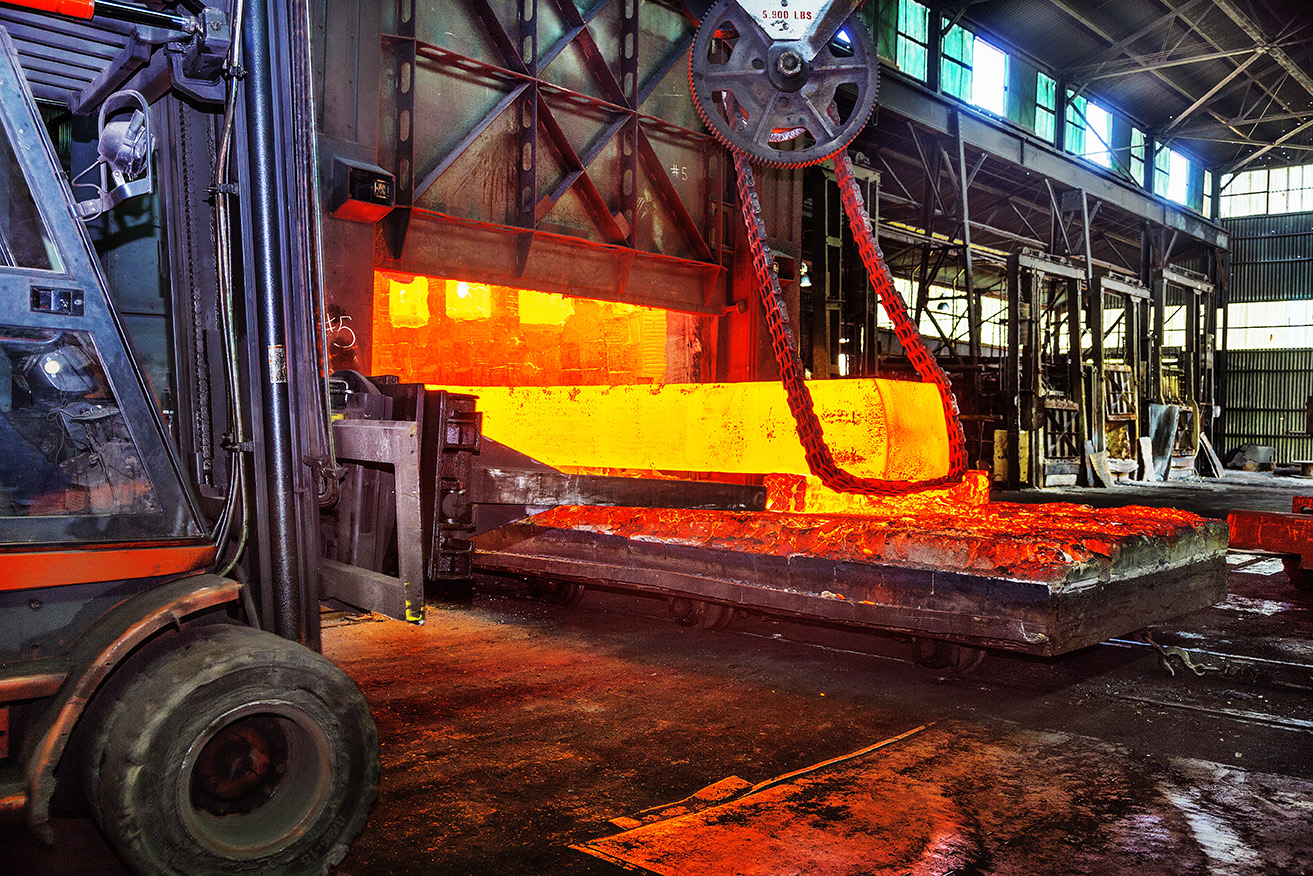What's Forgeability of Metals, Anyway?
Forging metal is the legitimate process of softening the metal with extreme heat, so that it's malleable. 
After the harnessing of fire and the invention of the wheel, forging is the most important development in eons of civilizations and history. It has made weapons, eating utensils, shoes for horses, beautiful jewelry, skyscrapers, and space shuttles--all because an enterprising and brave soul put metal to flame and stuck with it long enough to see what happened. Here at CanForge, we have been forging metal in Welland, Ontario since 1912.
The definition of forging is the science of applying heat and pressure to raw metals, and it is one of the oldest technologies known to man. Ancient civilizations forged not only tin and iron, but lead, arsenic, gold, silver, and copper. Gold was the rarest metal, so that became coins, jewels, and plate for the pharaohs and emperors. Silver was a little more abundant, so it, too, was turned into money, plate, and decorative items for the wealthy. Copper was somewhat abundant, so the money for the masses became copper pennies.
How Do Metals Differ?
Not all metals are created equal. There are five kinds of metals, from the completely non-reactive gold and platinum to the highly reactive potassium, which will ignite if it touches water. Most metals, the ones we associate with industrial use, are somewhere in the middle. They are "transition metals"--hard, shiny, strong, and malleable. Iron, nickel, copper, chromium, gold, and silver are among these industrial metals, although three of them are "noble" (pure and nonreactive) - gold, silver, and copper.
The varying chemical properties of metals informs how they respond to forging. At CanForge we do industrial forging which starts with alloys - combinations of metals that generate materials strong enough for demanding and sophisticated engineering applications. There's tensile strength, which measures the pulling stress a metal can tolerate; compressive strength, which determines the pressure it can tolerate; impact strength, that measures the impact it will take to cause a fracture; and yield strength, which accounts for the lowest stress levels that will result in a deformation.
Forging Styles
Forging metals can be done in two ways—with heat or cold. A cold forge is really room temperature, but heat is not part of the process. Rather, immense pressure on the metal causes the shape to change.
Heat forging is done exactly how it sounds - with tremendous amounts of heat. Heat forging changes the molecular structure of the metal, and in doing so strengthens the element itself. Adding other metals in an alloy not only adds different kinds of durability to the finished product, forging integrates the molecules of all the metals. A combination of low-temperature melding metals forms an alloy that has high marks on all four kinds of strength, a fine-grain metal with no weakening inclusions.
What Makes A Metal Forgeable?
All metals are forgeable, but the results vary according to the heat necessary to make the metal malleable. At extremely high heat, some metals either melt or the molecular structure changes to the point that it's not functional.
In general, a soft metal is more forgeable than the harder ones. The molecular structure of a given metal is the determining factor for overall forgeability. Titanium is a good example - it's super hard, very lightweight, and but in simple terms, pure titanium has a crystalline structure that remains stable at 1,620 degrees. So, it takes a lot of heat and pressure to change those molecules. Compare that to aluminum, which becomes malleable at 600 degrees.
Aluminum
Aluminum is one of the most usable metals - it's stable to a fairly low temperature, has low density, and is corrosion-resistant. These properties make aluminum alloys the choice for the aerospace and transportation industries, as well as construction.
Iron
Iron forging is the workhorse of forging - it's the basis for steel, and we work with steel quite bit here at CanForge. Carbon is corrosion-resistant, and the carbon/iron alloy that forms steel is the building block for modern society. Everything from construction to cast iron skillets are the result of forged iron; add chromium to get chrome, molybdenum, chromium, or nickel for surgical stainless steel; or tungsten and vanadium for tools. Iron alloys are malleable at 1180 degrees.
Inconel
Inconel is a trademarked alloy that combines nickel, iron, and chromium, and meets all the strength criteria. It is a strong choice for high-temperature applications and is also is anti-corrosive. There are a number of alloys in the Inconel metals range; these forgings are designed for highly specific uses.
Forging metals is the best way to guarantee the strength, durability and safety required for industrial applications.
If you would like to learn more about our processes, contact us or send us your specs for forged metals - we will be happy to assist any way we can help you ‘forge’ ahead.
